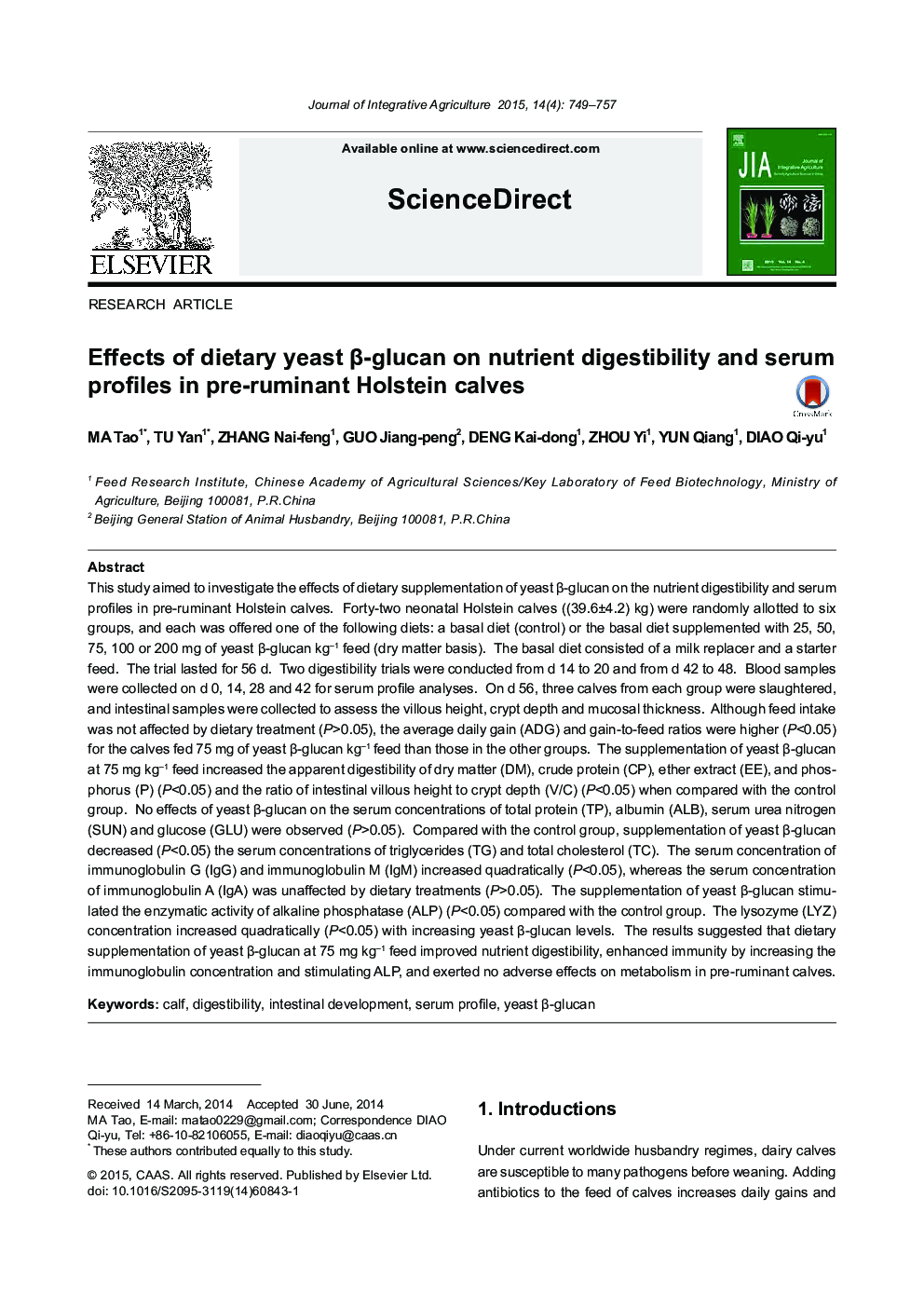| Article ID | Journal | Published Year | Pages | File Type |
|---|---|---|---|---|
| 4494366 | Journal of Integrative Agriculture | 2015 | 9 Pages |
This study aimed to investigate the effects of dietary supplementation of yeast β-glucan on the nutrient digestibility and serum profiles in pre-ruminant Holstein calves. Forty-two neonatal Holstein calves ((39.6±4.2) kg) were randomly allotted to six groups, and each was offered one of the following diets: a basal diet (control) or the basal diet supplemented with 25, 50, 75, 100 or 200 mg of yeast β-glucan kg−1 feed (dry matter basis). The basal diet consisted of a milk replacer and a starter feed. The trial lasted for 56 d. Two digestibility trials were conducted from d 14 to 20 and from d 42 to 48. Blood samples were collected on d 0, 14, 28 and 42 for serum profile analyses. On d 56, three calves from each group were slaughtered, and intestinal samples were collected to assess the villous height, crypt depth and mucosal thickness. Although feed intake was not affected by dietary treatment (P>0.05), the average daily gain (ADG) and gain-to-feed ratios were higher (P<0.05) for the calves fed 75 mg of yeast β-glucan kg−1 feed than those in the other groups. The supplementation of yeast β-glucan at 75 mg kg−1 feed increased the apparent digestibility of dry matter (DM), crude protein (CP), ether extract (EE), and phosphorus (P) (P<0.05) and the ratio of intestinal villous height to crypt depth (V/C) (P<0.05) when compared with the control group. No effects of yeast β-glucan on the serum concentrations of total protein (TP), albumin (ALB), serum urea nitrogen (SUN) and glucose (GLU) were observed (P>0.05). Compared with the control group, supplementation of yeast β-glucan decreased (P<0.05) the serum concentrations of triglycerides (TG) and total cholesterol (TC). The serum concentration of immunoglobulin G (IgG) and immunoglobulin M (IgM) increased quadratically (P<0.05), whereas the serum concentration of immunoglobulin A (IgA) was unaffected by dietary treatments (P>0.05). The supplementation of yeast β-glucan stimulated the enzymatic activity of alkaline phosphatase (ALP) (P<0.05) compared with the control group. The lysozyme (LYZ) concentration increased quadratically (P<0.05) with increasing yeast β-glucan levels. The results suggested that dietary supplementation of yeast β-glucan at 75 mg kg−1 feed improved nutrient digestibility, enhanced immunity by increasing the immunoglobulin concentration and stimulating ALP, and exerted no adverse effects on metabolism in pre-ruminant calves.
